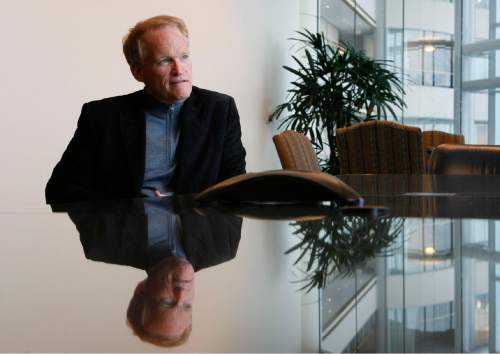This is an archived article that was published on sltrib.com in 2015, and information in the article may be outdated. It is provided only for personal research purposes and may not be reprinted.
Utah is at the epicenter of a remarkable movement changing the way we solve big social problems like homelessness, poverty, and unemployment. Impact investing, or leveraging private capital for social good, is playing a key role. Impact investors are motivated by double or even triple bottom-line opportunities to earn a financial return while also doing something good for society. The model has broad applicability across a variety of industries, including health care, energy, financial services, agriculture, and social services, to name just a few.
It isn't limited to a few niche investors either – consider this: Some $41 trillion (with a "t") are expected to be transferred from baby boomers to millennials over the next several decades. And studies and surveys indicate that social impact is the number one priority for these millennial investors, even outweighing a financial return.
In 2013, the James Lee Sorenson Center for Global Impact Investing was created at the University of Utah's David Eccles School of Business to be a center of excellence in this emerging social impact field. The center's mission is to provide an experiential education to a new generation of investors, policymakers, service providers, and entrepreneurs who are committed to developing thoughtful and innovative solutions to social and public health problems around the globe.
The Sorenson Center is now the world's largest educational impact investing center and operates on four distinct platforms:
• Engaging students to advise philanthropists, foundations, and investors on emerging impact investing opportunities.
• A student-run venture fund investing in high-impact opportunities in Utah and around the world.
• Academic research and curriculum coupled with invaluable experiential learning.
• A policy lab that works with governments, nonprofits, social enterprises, and investors around the country in trials of innovative and data-driven solutions to complex social and policy challenges.
Among other things, the Sorenson Center has facilitated investment in affordable housing and clean solar energy to those without power in India, access to consumer goods while improving and creating livelihoods in East Africa, criminal justice prevention programs in New York, diabetes monitoring software applications in communities around the country, and high school drop-out and job-training programs here in our own backyard — investments that would have been unthinkable to mainstream investors and philanthropists just a few years ago. All told, the center has helped facilitate more than $26 million in direct impact investments and $100 million in follow-on funding in the last three years.
The center is also one of only two academic institutions in the country (the other being Harvard) advising on an innovative new model of impact investing called "pay for success." In it, private and institutional investors team up with state and local governments, nonprofits and academia to fund high-quality, evidence-based social programs in disadvantaged communities around the country. Governments repay investors if — and only if — predetermined success metrics are met. This performance-based funding model is improving the quality of programs and paving the way for governments to pay for what actually works in social services. Utah has led the way in applying the model for at-risk preschool children with the potential for substantial savings to taxpayers with programs that produce results.
No one sector can solve complex social problems on its own — collaboration is key. Impact investing, alongside traditional checkbook philanthropy and more effective government funding for social services, has the potential to move the needle on some of society's greatest challenges. Leveraging private capital for public good — in short, doing good while doing well — is simply smart giving and represents a highly sustainable and impactful approach to philanthropy.
Entrepreneur James Lee Sorenson provided the David Eccles School of Business at the University of Utah with a $13 million gift in 2013 to create the James Lee Sorenson Global Impact Investing Center.



